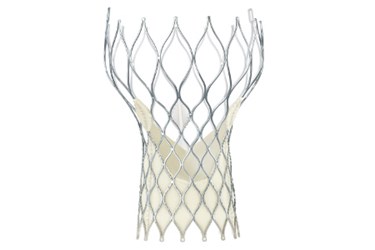Edwards Edges Medtronic In Initial TAVR Comparison Trials

By Ryan Brinks
After back-to-back days of research announcements from makers of competing transcatheter aortic valve replacement (TAVR) devices, the Edwards Lifesciences Sapien XT recently gained an edge over the Medtronic CoreValve, according to a Forbes analysis of the studies.
At the American College of Cardiology meeting in Washington, D.C., Medtronic revealed that, according to its "High Risk Study of the CoreValve U.S. Pivotal Trial," the Medtronic CoreValve saved more lives than open-heart surgery. In the study, only 14 percent of patients who received CoreValve died within a year of treatment, compared to 19 percent for open-heart surgery, Businessweek reported.
A day later at the same meeting, Edwards unveiled results from the CHOICE trial, which compared the implantation success of the Sapien XT with the CoreValve. The CHOICE study was an investigator-initiated trial that tested both devices in 241 randomized patients across five medical centers in Germany.
According to the results, the balloon-expandable Sapien XT was successful in 95.9 percent of patients, while the self-expandable CoreValve succeeded in 77.5 percent of patients, Forbes noted. While there was no difference in 30-day cardiovascular mortality, a new pacemaker was required half as often for the Sapien XT (17.3 percent of the time, compared to 37.6 percent for CoreValve). The Sapien XT also boasted more common improvements in symptoms and quality of life measurements.
“This is a very dynamic field,” said lead author of the CHOICE study Abdel-Wahab. “We now have new valves coming out that will probably be even better, but we do not have enough data about them yet. These results can help to inform the design of future devices.”
In Bloomberg's coverage of the studies, aortic regurgitation (AR) occurred in 4.1 percent of Sapien XT patients and 18 percent of CoreValve patients. On the other hand, stroke occurred in seven Sapien XT patients, compared to just three in CoreValve patients.
In regards to the CHOICE trial, Forbes analyst Larry Husten said “results favor the Sapien XT, but the size and scope of the trial mean that the discussion and debate will certainly continue.” Medtronic has also questioned the CHOICE investigators' use of angiography in the study, calling the technique "the least effective measure for determining AR."
With 300,000 people around the globe who suffer from aortic stenosis, the potential market for artificial heart valve devices has been estimated at around $3 billion a year. As such, the fierce competition is poised to continue.
